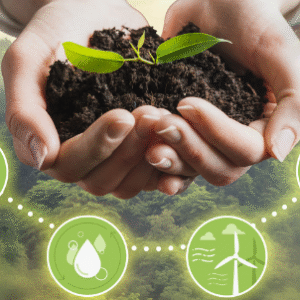In August 2025, over 65 agricultural stakeholders, including farmers, extension officers, and community organizations, participated in a two-week Training of Trainers (ToT) program in Omuthiya, Omusati, and Rundu regions of Namibia. The training focused on strengthening resilience in dryland areas through modules on Community Seed Banks, Farmer Field Schools, and Green Value Chains. This initiative is part of the Namibia Child Project under the Dryland Sustainable Landscapes Impact Program (DSL-IP), led by the Ministry of Environment, Forestry and Tourism and the Ministry of Agriculture, Fisheries, Water and Land Reform, with technical support from FAO and funding from the Global Environment Facility (GEF).
The program aimed to address the challenges smallholder farmers face, including unstable market prices, limited access to extension services, and the erosion of traditional seed systems. Through the Green Value Chain module, participants learned strategies to add value to their products, particularly non-timber forest products like Devil’s Claw, and reduce harvesting risks. Farmers reported gaining practical knowledge to assess risks and apply them in their communities.
Community Seed Bank sessions emphasized preserving drought-tolerant seed varieties to ensure food security and safeguard agro-biodiversity. Participants shared traditional knowledge on seed storage and explored ways seed banks can help communities withstand climate shocks, equipping them with tools to enhance local seed sovereignty.
Farmer Field Schools offered hands-on learning in sustainable agriculture, rangeland management, and watershed conservation. Participants highlighted the importance of practical skills for rural communities, enabling them to identify challenges and implement solutions such as conservation agriculture or indigenous tree planting.
The training was designed to create a multiplier effect across Namibia’s Kunene-Cuvelai, Etosha, and Okavango Sub-basin landscapes. Regional trainers are expected to replicate the knowledge in local languages and contexts, empowering communities to drive sustainable change from the ground up.
By combining seed sovereignty, inclusive value chains, and practical field-based learning, the initiative equips dryland communities to adapt to climate challenges, enhance resilience, and contribute to Namibia’s Land Degradation Neutrality targets. The Namibia Child Project is part of the GEF-funded Sustainable Forest Management Impact Program on Dryland Sustainable Landscapes, which supports 11 countries across Africa and Asia with FAO as a lead technical partner.







